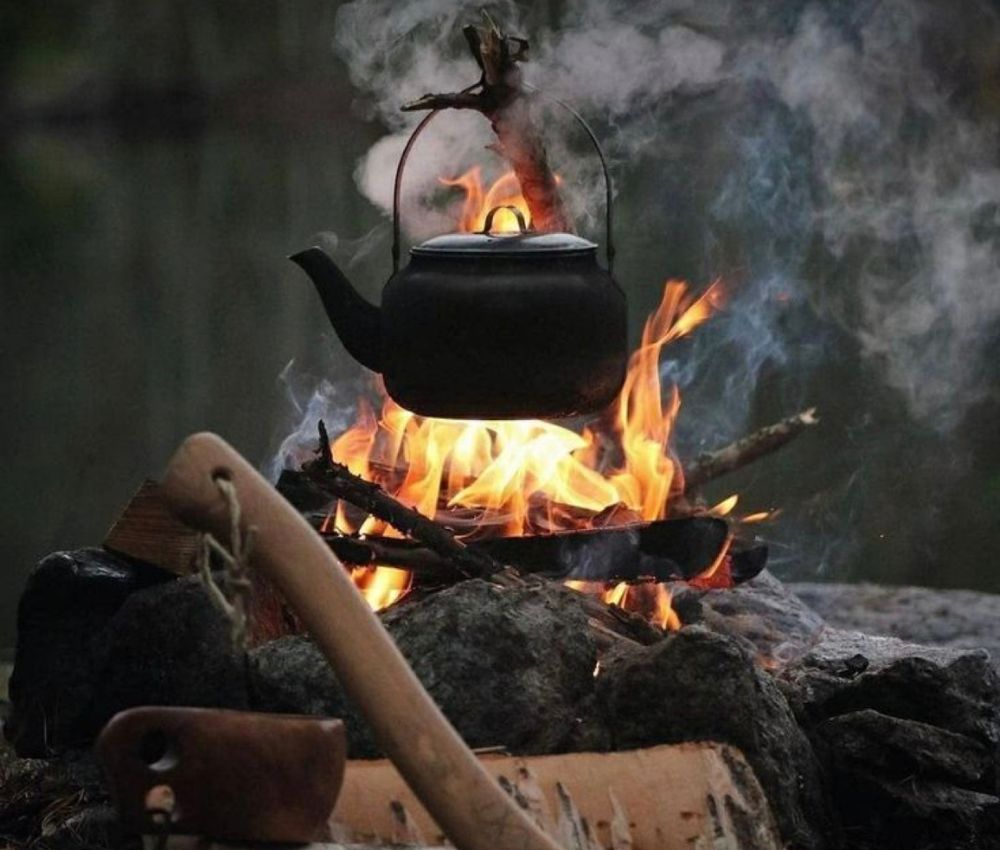The Value of Yarning: Human Connection, Shared Language, within Systems Change

Friday’s yarning topic came from one of our regular guests and had two parts. Firstly they reflected on how valuable it was coming together and “spending time as we are now.” Then they asked: how can we communicate to our workplaces and organisations the “understanding of the value of spending time together, sharing, hearing other perspectives?”
Why Do We Yarn?
During our cuppa, Arama, Founder of Walk Together Aotearoa shared how 100,000 Cups of Tea came about as a co-design methodology “cups of tea really came from looking at two different worlds, an ancient… Aboriginal world, 60,000 plus years old, and then you have the new world of the hierarchy … and then and all that came with that for indigenous people in Australia.” This was recognised and amplified through the facilitation of Walk Together, and its systemic change process by asking the question - “what would enable you to participate equitably, how do you talk about important or complex matters?” The answer from the community was: “We need to have cups of tea. And that's how that started.”
Reflecting on the regular topics we discuss in the 100,000 Cups of Tea space a participant from the healthcare space said, “it's a really hard thing to quantify systems change. So I guess when I do speak on the value of it potentially to people who work above me, you know my manager and that kind of thing, I just explained about how it weaves together a lot of really difficult and complex constructs and around leadership change”. They went on to say, “they're tough conversations. And that's what I sit in these yarns for, is to get really lovely… kind of nuanced perspectives from others that helps me develop my own… I think that's very actionable stuff.”
Intercultural Exchanges Across Sectors
Another theme that arose was the incredible value of breaking out of silos and discussing ideas with others from different work sectors. “Because everyone is so siloed and the power structures are vertical, everyone thinks that it's unique to them, and it's really not.” Another regular guest added “And what I enjoy about this in particular is that it's not all [healthcare workers], and we've got that intersection across all organisations… and hearing the kōrero it makes you go sit with it for a moment and hearing what others are experiencing”
One of the take-aways was that we see the same need for Systems Change across many parts of society. One participant has noticed that, “Within different elements or industries, you'll see the same patterns and the same power structure struggles the same conflicts”
Another reflected, “what we see happening in patterns in one system is surely happening in the other systems… So systems change [is] everybody's business.”
Shared Language
It was acknowledged that a shared language arose from yarning about systems change. “We start to develop a vocabulary, you know, around this type of work, and just the language, and you start to get familiar with it. I mean, you know, start to use those words in meetings, and people start to recognise... you know, this type of change is a thing.” Another person joining us for the first time agreed, adding “what I really like is, you know, is all the topics and how we're sharing, and, I agree, having that language that we can start using. So, I mean, I'm really excited about getting into it more and learning so for me, that's where I sit.”
The Value in Human Connection
It was generally agreed that holding space for a cuppa and a yarn and having that human connection without agenda was rare in the workspace and very much valued by the group. “Cos, you know, how many spaces do you have like this?, where you have that to do.” Another countered, “I've seen different versions of it, of having that kind of sit down and conversation. Unfortunately, in the sustainability space, you don't necessarily see it enough, which is why there is often hair pulling and people burn out.”
A long-time Cup of Tea participant further reflected, “So it's, it's amazing to be in a space where we can share this knowledge…there's human connection. And when I first joined these cups of tea, I was blown away at the openness of it. There is no hierarchy. You can literally come with a topic and human connection just flows.”
We heard that when there is human connection, people intrinsically want others in their life to join the meaningful conversation. “And I'm thinking about all the friends that I want to come along and be a part of this kōrero…, yeah, I really loved the human connection”
Summing Up
To answer the initial question that set the topic for the day, one guest summed up concisely: “that's how if you have to sell it to your standard nine to five corporate space, I would use it as it is a form of social development, because you're learning soft skills, you're meeting people of different elements, of different backgrounds, different cultures, different needs. And you are learning to develop active listening, you know, thinking, collaborating, and empathy.”
A final reflection from the Walk Together team concluded “We often use [Cups of Tea] to work on systemic change. It's a methodology that we are familiar with”. Through this kōrero today we were able to unpack the value of yarning, having a cuppa with a mix of worldviews, lived experiences and cultures, and “that's actually what walk together is about, is to bring everybody's knowledge systems, lived experiences together and then use them...not just sit them at the tokenistic level.”
Register here and join us every at 11am for another interesting conversation.

